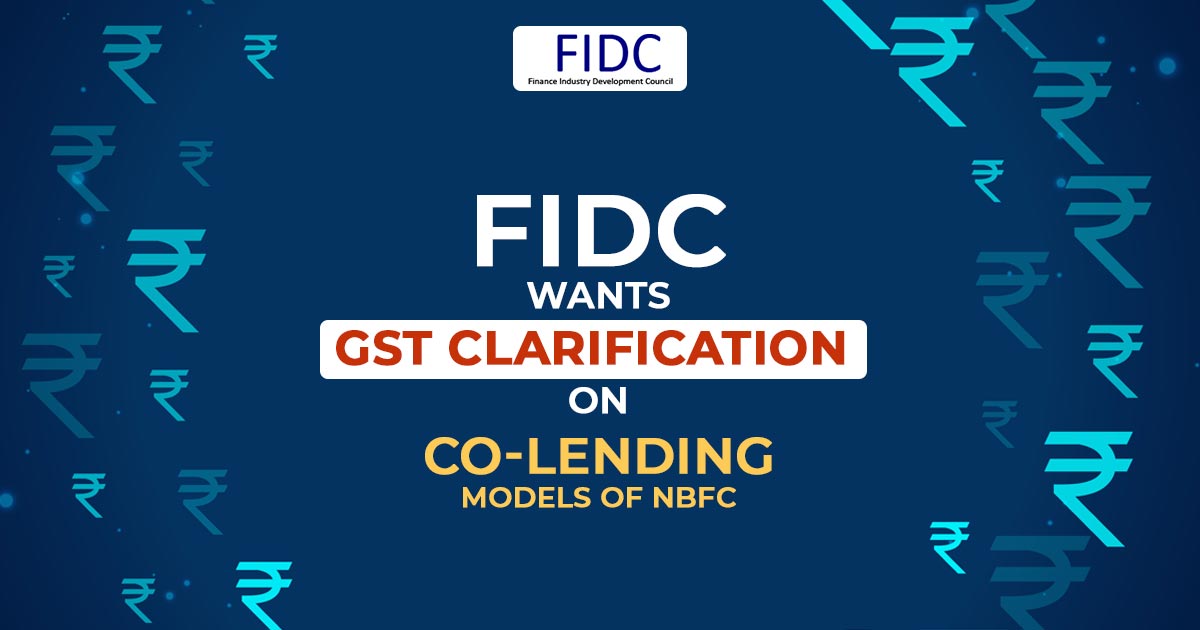
The Finance Industry Development Council (FIDC), an organization that represents non-bank lenders, has officially urged the Central Board of Indirect Taxes and Customs (CBIC) to offer explicit clarification concerning the taxation of surplus interest held by Non-Banking Financial Companies (NBFCs) in co-lending arrangements with banks under the Goods and Services Tax (GST) system.
This request is a response to the ongoing inquiry by the Directorate General of GST Intelligence into the co-lending business measure employed by NBFCs and banks. Through a letter to CBIC chairman Sanjay Kumar Agarwal, FIDC emphasized the need for a complete declaration to remove uncertainties related to possible GST revenue leakage allegations.
In co-originating models involving banks and NBFCs, credit is usually presented in an 80:20 ratio. FIDC explained that the higher interest charges imposed by NBFCs in these models show their greater borrowing costs compared to banks. The letter stressed that since the excess interest retained by NBFCs does not function as consideration for any particular activity, it should be exempted from GST.
FIDC highlighted arrangements where banks organize co-lending as a subsequent acquisition of their loan portion after disbursal, resembling the direct assignment approach. In this setup, an NBFC identifies borrowers on the grounds of a predetermined credit limit, and the bank acts as the acquiring co-lender.
Read also: Rig Owners and Agents Welfare Association Demands for GST Clarification on Rate
Following the disbursement, the bank takes over 80% of the loan, whereas the NBFC retains 20%. A specialized escrow system is set up to gather borrowers’ repayments, which are subsequently allocated among co-lenders based on a predetermined ratio.FIDC argued that the “excess interest spread,” which denotes the disparity between the blended interest rate presented to the borrower and the interest remunerated to banks for co-lent loans, is merely interest earnings and should not be liable to GST.
FIDC emphasized that while this excess interest spread is similar to interest earnings, it is subject to tax but not a fee or charge that is liable to be paid GST. As per the letter, there is no exceptional provision of services from one party to another in co-lending contracts, where both entities function as co-lenders to extend credit. This further bolsters the argument for GST exemption, promoting equitable and transparent treatment of financial transactions within co-lending frameworks.
The initiative undertaken by FIDC seeks to offer essential elucidation in the regulatory domain, guarantee impartial and transparent treatment of financial transactions in co-lending models, and in the end foster advantages for the financial sector as a whole.